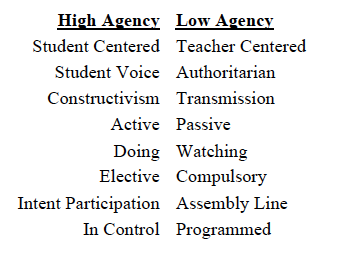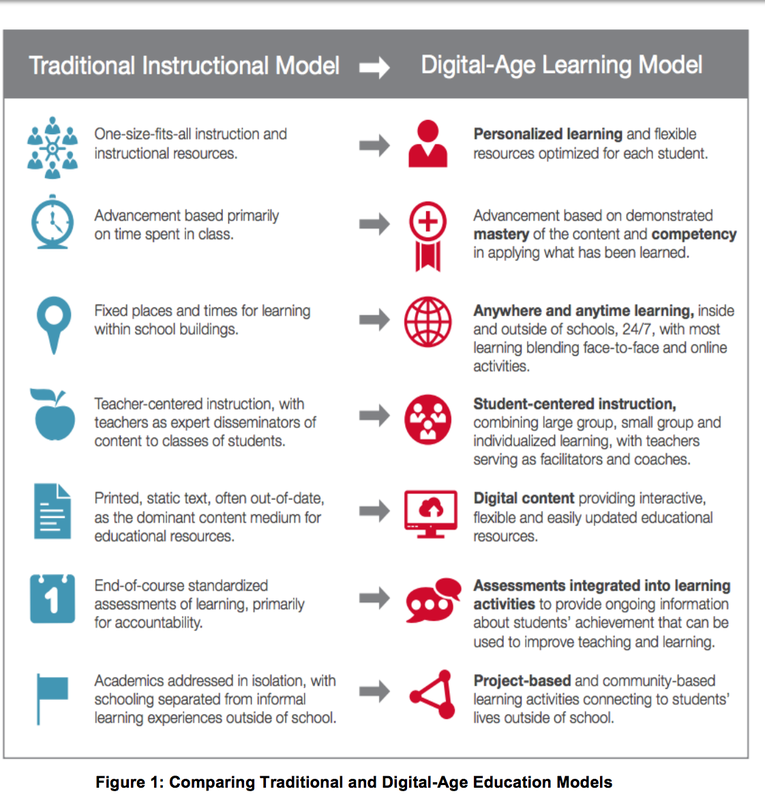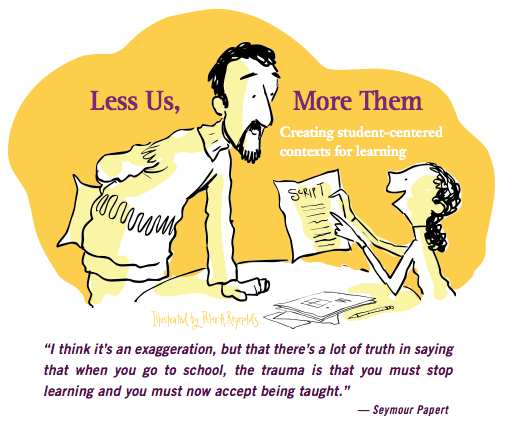 The concept of learner agency has been integral to educational thinking and practice since the beginning: the idea that “education is the process through which learners become capable of independent thought which, in turn, forms the basis for autonomous action”, has had a profound impact on modern educational theory and practice (Trend 1: core-ed.org). Yet, lately, when I have been using the term ‘Learner Agency’ in professional development sessions and in my conversations with educators and leaders, I get the sense that they are not quite sure about how to move from talking about it to actual action. What is it... really?“The notion of agency as contributing to cognitive processes involved in learning comes primarily from the Piagetian notion of constructivism where knowledge is seen as “constructed” through a process of taking actions in one’s environment and making adjustments to existing knowledge structures based on the outcome of those actions. The implication is that the most transformative learning experiences will be those that are directed by the learner’s own endeavors and curiosities.” (Lindgren & McDaniel, 2012) Another way of thinking of learner agency is when learners have “the power to act” - when learning involves activity and initiative on the part of the learner themselves, and not just the teacher, curriculum, and/or resources, etc. Consider concepts such as personalization and learn-centric or learner-centered education: these are aspects of what we might mean by learner agency, but it even goes deeper than that!
Overall there is a sense of independence and responsibility on the part of the learner: the opportunity to have choice and voice in planning, implementation, and assessment. Making Learner Agency a Reality for our Students Involving the learners in the decision-making is a must. These decisions will place more ownership and empowerment on the part of students. Teachers must become comfortable with changing their leadership style from directive to consultative -- from "Do as I say" to "Based on your needs, let's co-develop and implement a plan of action together." Focus on...
Meaningful change must begin with active student involvement. Advocacy, choice, and voice should occur in the classroom as well as in any learning environment. Relevance and value on the part of our learners are central elements to success.
17 Comments
|
AuthorJaclyn coaches and assists K-12 educators, ITFs, and Administrators to adapt, not adopt – fostering digital initiatives to transform professional learning through changes in pedagogical shifts and meeting the needs of all learners to champion creativity and innovation. @jaclynbstevens Categories
All
Archives
September 2020
|



 RSS Feed
RSS Feed